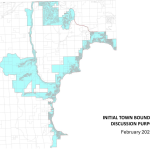Dear Therapist: My Road Rage Is Out Of Control
Dear Therapist: I’ve actually scared myself a few times this summer with how frustrated I’ve been while driving. I keep telling myself I will be calmer but that goes out the window pretty quickly. Is there anything other than just trying to breathe and be calm that can help with this?
Dear Rage on the Road: You are not alone. Driving can activate all kinds of intense feelings. It can make us scared when other drivers are causing dangerous situations. It can make us indignant when other drivers disobey laws or don’t follow common courtesy rules. It can make us infuriated when other drivers go too slowly and hold us back from getting places on time.
On top of all these feelings, driving a car combines a sense of power – I’m driving a big powerful machine, with a sense of total powerlessness – unless I want to ram into the car in front of me, there’s nothing I can do to get them to move faster (and that probably won’t work anyway). What we are left with are pointless and risky behaviors like ‘I’m going to drive by you and look at you so you know how angry I am and how wrong you are’, tailgating or passing when it’s not safe to do so. And, since being in a vehicle gives us a sense of freedom to be anonymous in our behaviors, it’s easier to let our darker instincts take hold.
So, what to do? Just telling yourself to be calm and breathe is great if it works. But often it doesn’t. Changing a pattern of road rage usually requires intentionality and regular practice. First, why do you want to change this behavior? Write it down and post it somewhere you can see while driving. For example, ‘I’d rather be calm than right’, or ‘road rage – it’s just not worth it’. Second, plan for all manner of obstructions every time you drive somewhere. Visualize it. This is reality. You can fight it or you can accept it. You can write that down too. ‘There will be obstructions.’
The third step is the most challenging but also highly potent in helping you to be a stronger and more resilient person in all aspects of your life. This involves becoming more capable of tolerating uncomfortable sensations and feelings in your body. Driving, especially if you are prone to road rage, is an excellent way to practice the art of feeling intense things in your body – fear, frustration, the rage of injustice – and not letting these feelings take over and dictate your behaviors.
I recommend starting this practice when you’re not on the road. Whenever you feel an intense discomfort in your body, try to describe to yourself what’s happening. Red face, tense shoulders, etc. Gently tell yourself, I can handle these sensations. Don’t try to fix them or not feel them. You can handle them.
When you begin to feel more capable of this practice, try it while driving. Look forward to the chance to practice. The more infuriating drivers on the road, the more practice you get. You might feel rage, but it doesn’t control you or make you do things you later regret. This, Rage on the Road, is power. You are in charge of you.
Danielle B. Grossman, Licensed Marriage and Family Therapist, has worked with clients in the Truckee/Tahoe community for 20 years. She helps individuals and couples with their relationships, anxiety, grief, and struggles with food and addiction. Reach out at truckeecounseling@gmail.com or learn more at truckeecounseling.com
Support Local Journalism


Support Local Journalism
Readers around Lake Tahoe, Truckee, and beyond make the Sierra Sun's work possible. Your financial contribution supports our efforts to deliver quality, locally relevant journalism.
Now more than ever, your support is critical to help us keep our community informed about the evolving coronavirus pandemic and the impact it is having locally. Every contribution, however large or small, will make a difference.
Your donation will help us continue to cover COVID-19 and our other vital local news.









